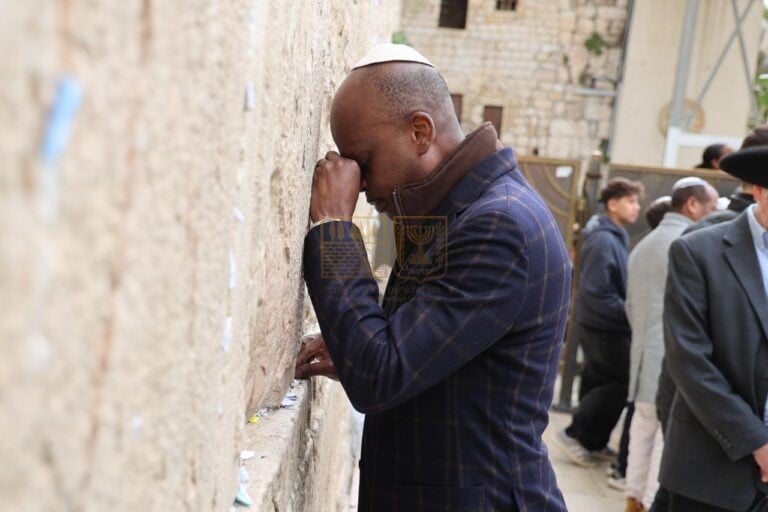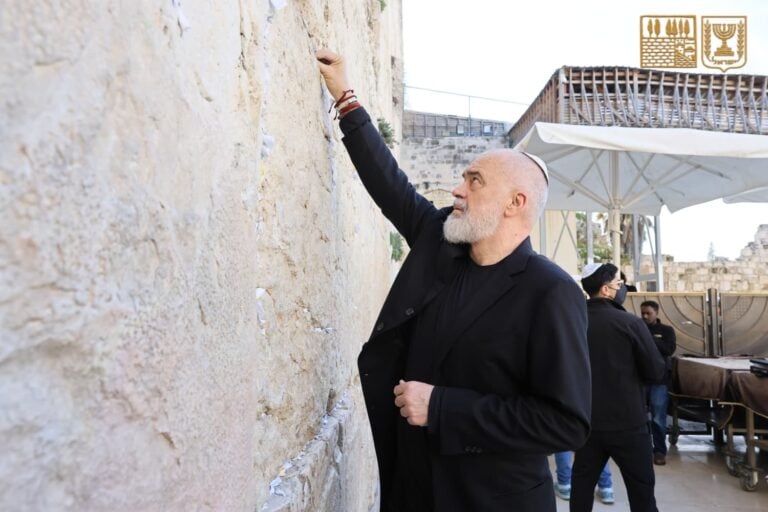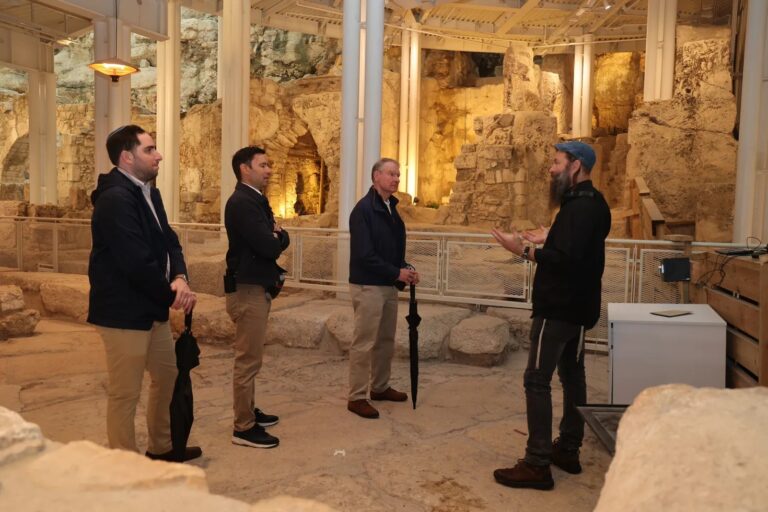Parashat Vayetzeh 5786
Rabbi Shmuel Rabinowitz, Rabbi of the Western Wall and Holy Sites
The figure of our matriarch Rachel occupies a central place in the history of the Jewish people – a symbol of love, of pain, and of unwavering faith. Her well-known tomb in Bethlehem remains to this day a focal point of prayer and tears, a source of inspiration for rebirth out of brokenness, and a beacon of hope for a more perfected world. As the prophet says:
“A voice is heard on high,
Lamentation, bitter weeping,
Rachel weeping for her children…
Restrain your voice from weeping,
And your eyes from tears,
For there is reward for your labor, says the Lord,
And they shall return from the land of the enemy.
And there is hope for your future, says the Lord,And the children shall return to their borders.”
(Jeremiah 31:14–16)
Rachel’s death, at a young age and on the road toward the land of the forefathers, begins with a tragic event described in this week’s Torah portion, Parashat Vayetze.
Jacob arrives at Laban’s home to marry Rachel. Laban deceives him and first gives him Leah. Only after Jacob commits to completing fourteen arduous years of labor does he merit bringing Rachel into his tent. But even then, the trial continues: Rachel is barren, while her sister bears sons one after another. Only after many years does Rachel give birth to her first child – Joseph.
After twenty years of labor in Haran, Jacob wishes to return to the Land of Israel. He tells his wives that Laban’s attitude toward him has changed, his face no longer as before, and he fears his behavior. Knowing that Laban would not permit him to leave, Jacob departs in secret with his family and possessions. Just before they set out, Rachel takes a bold step: she enters her father’s tent and takes the teraphim – the household idols, which according to tradition served as divining objects. Rachel does this with pure intent: to prevent her father from continuing in idolatry and to hinder any possibility that he would use them to discover their escape.
Three days pass before Laban discovers their disappearance. Enraged, he pursues Jacob and overtakes him. In their confrontation he hurls harsh accusations:
“What have you done, that you stole my heart and led my daughters away like captives of the sword… Why did you steal my gods?”
(Genesis 31:26–30)
Laban complains that he was not given the chance to send off his daughters “with songs, with timbrel and lyre,” but in the end he reveals his true grievance – the theft of the idols. Jacob, unaware of Rachel’s act, rejects the suspicion and replies forcefully:
“With whomever you find your gods – he shall not live.
Before our kinsmen, identify what is yours with me and take it.”
(Genesis 31:32)
The Torah describes the meticulous search through the tents. Rachel, aware of the severity of the situation, hides the teraphim under the cushion of the camel saddle. When her father asks to search, she says:
“Let my lord not be angry that I cannot rise before you – for the way of women is upon me.”
(Genesis 31:35)
Rachel succeeds – the teraphim are not found – but she pays a heavy price. Jacob’s words take effect, and shortly thereafter, during Benjamin’s birth, she dies on the roadside, on the way to Efrat – Bethlehem. Our sages teach that Jacob’s words, though uttered without ill intent, carried great spiritual weight: “The curse of a sage, even when spoken for no reason, comes to pass.”
Rachel our mother, whose intentions were entirely pure, died prematurely, solely because Jacob innocently expressed a statement he would never have uttered had he known the truth. But words once spoken – act. They create reality, for good or for harm.
King Solomon, the wisest of all men, phrased it thus:
“There is an evil I have seen under the sun – like an error that proceeds from the ruler.”
(Ecclesiastes 10:5)
From this verse the Sages learned a foundational principle: “A covenant is made with the lips” (Moed Katan 18a) – meaning, words have binding power, and a person must be careful even with harsh expressions about themselves. As the common saying goes: “Do not open your mouth to the Satan.”
Words do not simply vanish into the air. They leave an imprint on reality. Therefore, each of us bears responsibility – to speak with wisdom, to consider, to soften. For in speech lies the power of life and also the danger of undermining it.
If we were truly aware of the power embedded in our words, in casual conversation, in a sentence spoken in anger or sarcasm, we would be far more cautious. Rachel, who understood the profound force of speech, merited through this understanding to become the eternal voice of Israel’s prayers, the one whose tears open the gates of Heaven.
The message for our generation is clear: speech is a creative force. Before we speak, we must think; before we respond, we must consider the implication of our words. Mastery of speech is not merely politeness. It is an expression of moral and spiritual responsibility. And in the deepest sense, perhaps it is precisely through good words that we can hasten the redemption.









